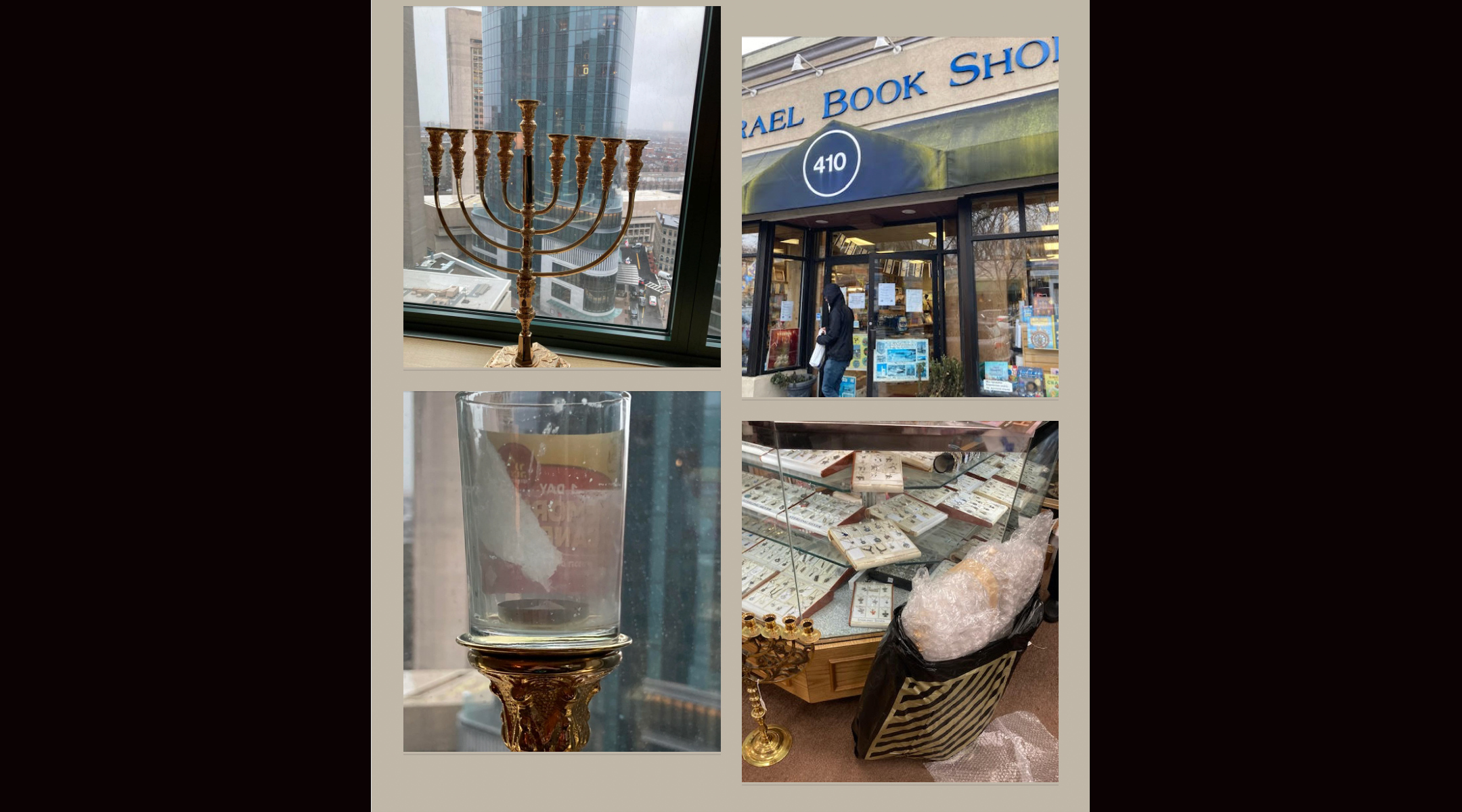How Jewish studies scholars navigated Jewish law and fire-code rules to save Hanukkah at their conference
The conference hotel said candles were forbidden just days before the conference, which overlaps with Hanukkah

TKJ
(JTA) — The email landed like a batch of soggy latkes last week: Hanukkah candle-lighting would not be permitted at the annual conference of the Association for Jewish Studies.
“We recognize the sacrifice many of you will make to attend the conference during the holiday of Chanukah. We apologize that the conference hotel will not allow us to light candles in a separate room, as we have done in the past,” the professional group for Jewish studies scholars said in a message to its members, of whom approximately 1,200 are expected at this week’s convening in Boston.
Thus began a MacGyver-like scramble by some of the country’s leading Jewish studies scholars to hack a Hanukkah solution that would comply with both halacha, Jewish law, and the Sheraton Boston’s interpretation of Massachusetts fire code.
At first, the scholarly group directed conference-goers to details about a Hanukkah celebration at a nearby synagogue where menorahs could be lit, at least on the first night of the holiday Sunday. But that was little consolation for those whose personal practice of Judaism is rooted in traditional Jew law — which says the Hanukkah menorah must be lit in the place one eats and sleeps.
Some conference attendees said they would rely on Jewish law’s provision for travelers, which says someone on the road can be considered as having fulfilled the commandment to ignite a Hanukkah light if his family at home does so. But not everyone at the conference has a family, and even some who do were unsatisfied with that option.
Electric menorahs offered another possibility. After all, such devices are frequently found in hotels and other public spaces, and Chabad, the Orthodox denomination, sometimes uses them in its famous public Hanukkah celebrations, this year scheduled for more than 15,000 locations around the world. But the use of oil wicks or, in the last few centuries, wax candles that offer a similar experience is considered preferable, according to many interpreters of Jewish law; Chabad says electric menorahs are ideal for symbolic use, not to fulfill the mandates of Jewish law.
On Facebook and over email, anger was expressed. Impractical suggestions for the conference to relocate were made. And fear mounted that some conference-goers would smuggle in contraband menorahs and light them in their hotel rooms.
“You can’t stop people from breaking the rules, and it’s certainly much less safe to have that than something being watched,” Joshua Shanes, a historian at the College of Charleston who was part of the behind-the-scenes scramble, told the Jewish Telegraphic Agency.
Finally, on Friday morning, with some scholars already Boston-bound, Laura Arnold Leibman, a professor at Reed College and a member of the AJS board, announced a solution.
“We were able to negotiate with the hotel what I am referring to as the ‘Kaplan-Shanes compr[om]ise’ this morning that should allow for a halachic solution to the candle lighting situation (see details below), and I was able to get a beautiful hanukkiah this morning from the Israel Bookstore in Brookline that will meet the fire code,” she wrote on Facebook, to plaudits from association members.
Under the plan, a single Hanukkah lamp can be lit, under supervision, at the hotel. But each candle must be contained within a glass enclosure with at least 2 inches of space above the flame — so Leibman bought glass votives used to hold yahrzeit memorial candles, as well as a massive menorah to which they could be affixed.
“This was the only Hanukkiah I could find in Brookline large enough to handle them [and] will clean them up before Sunday and glue them down for safety to the inserts,” Leibman wrote alongside pictures of the brass menorah on her hotel windowsill.
That solved the problem of the flames themselves. But what of the obligation to light, which under traditional Jewish law each household must fulfill individually?
Enter the “Kaplan” of the compromise: Lawrence Kaplan, a professor of Judaic and rabbinic philosophy at McGill University who is perhaps best known for compiling and editing the teachings of Rabbi Joseph Soloveitchik of the philosophy of Maimonides, the 12th-century Jewish philosopher.
Kaplan wrote on Facebook that he had consulted Rabbi Daniel Fridman, the rabbi of the Teaneck Jewish Center and the top rabbi at the Torah Academy of Bergen County, for a way to have a single conference-goer fulfill the mitzvah of lighting a Hanukkah lamp on behalf of others. He learned that a contribution of a penny (or more) could enable someone to buy into the mitzvah — so a bowl for coins will sit aside the jerry-rigged menorah.
“I really l appreciate the effort and expense to which you went,” Kaplan wrote on Liebman’s Facebook post. “It was easy for me to suggest the idea but it was you who transformed it into a reality.”
Now, the discussion has shifted to whether contributions in excess of a penny can be turned into donations to the Association for Jewish Studies — and what can be done to prevent such a snafu in the future. Next year’s conference in San Francisco starts after the holiday ends, and the 2024 conference will be online-only. But in 2025, the first day of the conference again corresponds with the first night of Hanukkah.
Shanes and Liebman both indicated that they expected the right to light candles to be written into the contract with any future conference host, marking a return to the old custom of having conference-goers light candles on their own schedule.
“At least for this year,” Shanes said, “we’re all coming together. It’s a silver lining I suppose.”
This article originally appeared on JTA.org.





















